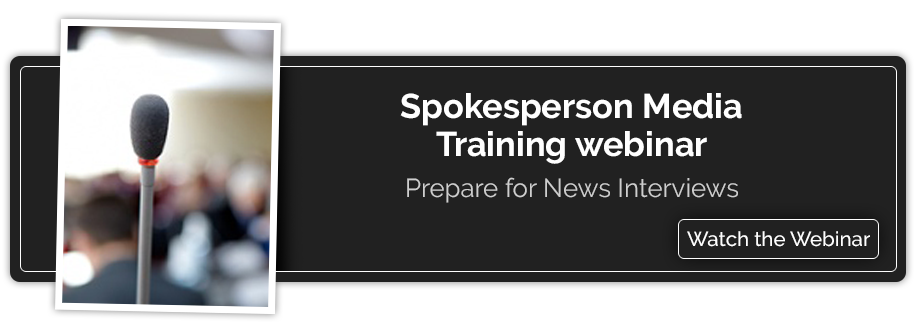Learn from slip-ups, pick up the pieces, and move on with help from PR.
 In the midst of a crisis, your CEO says something insensitive. During a media interview, a top executive mistakenly talks about a project you weren’t ready to discuss yet. Mistakes by a company spokesperson happen all the time. It’s how you handle them that defines your company and makes the difference between a minor error and a major mess.
In the midst of a crisis, your CEO says something insensitive. During a media interview, a top executive mistakenly talks about a project you weren’t ready to discuss yet. Mistakes by a company spokesperson happen all the time. It’s how you handle them that defines your company and makes the difference between a minor error and a major mess.
To inform the public about your company, you must put yourself out there. The more you do, the bigger the potential for missteps. Learn these public relations tips and techniques to decrease the chances of a mistake happening to your company.
Mistake #1: Outright Lying
At the center of the Volkswagen diesel emissions crisis, which led to a massive recall and huge fines for the company, CEO Michael Horn told a House subcommittee (under oath, no less) that only a handful of engineers were to blame for the debacle. With all the areas of the automobile that were affected, such as cost, power and mileage, detractors quickly realized that dozens of people would have to be involved and that he was clearly lying.
If your spokesperson has been caught in a lie, your best option is to own up to it. Don’t make things worse by creating additional lies to cover up the first one. Then, offer a sincere apology. You should also do your best to explain what happened, especially if it’s something simple like a miscommunication.
Mistake #2: Your Spokesperson Implodes
The examples in this category are plentiful: Subway’s longtime pitchman Jared Fogle convicted for child pornography and pedophilia; Bill Cosby dropped from projects at Netflix and Temple University following sexual assault allegations; and Paula Deen losing television shows, endorsements from Smithfield Brands and book deals after admitting she used a racial slur are just a few cases in point.
While your spokesperson may not be as famous as those listed above, he does become tightly associated with your brand. So when he messes up, you take the hit. You must quickly disassociate your company with the spokesperson and what he has done wrong. Then, you should reintroduce customers to the qualities that made your brand desirable in the first place, which have nothing to do with the spokesperson. You may also want to make a public corporate commitment to give back, show compassion or work with national groups to end the offending behavior.
Mistake #3: Media Fail
Frequently, a top executive veers off track during an interview and wreaks havoc: Tinder CEO Sean Rad confusing the meaning of sodomy and bragging about his sexual exploits; BP CEO Tony Hayward selfishly lamenting in an interview that he’d like his life back after his company’s devastating oil spill affected millions of humans and wildlife; Former Turing Pharmaceuticals CEO Martin Shkreli calling a reporter a moron.
When interviews go wrong, don’t dwell on the mistake. It is unlikely that the entire interview was a disaster, so focus on what went well and capitalize on that. And, for goodness’ sake, get your spokesperson some training.
Axia Public Relations can prepare your spokesperson for prime time (and any other time he needs to speak in public). Our training includes valuable instruction like correcting body language; staying composed when faced with difficult questions; and getting an interview back on track and focused on your brand. Whether you have zero training or just want to brush up on your skills, contact us or watch our webinar Media and Spokesperson Training to receive expert professional coaching.
 Lisa Goldsberry is a blogger for Axia Public Relations with more than 15 years of public relations experience. She specializes in business and technology PR. Lisa has worked for Axia since December 2013. Learn more about Lisa Goldsberry. Connect with Axia on Twitter @axiapr or tell us what you think in the comments below.
Lisa Goldsberry is a blogger for Axia Public Relations with more than 15 years of public relations experience. She specializes in business and technology PR. Lisa has worked for Axia since December 2013. Learn more about Lisa Goldsberry. Connect with Axia on Twitter @axiapr or tell us what you think in the comments below.
Featured image credit: 123rf.com
Topics: public relations, crisis communications, spokesperson training


Comment on This Article